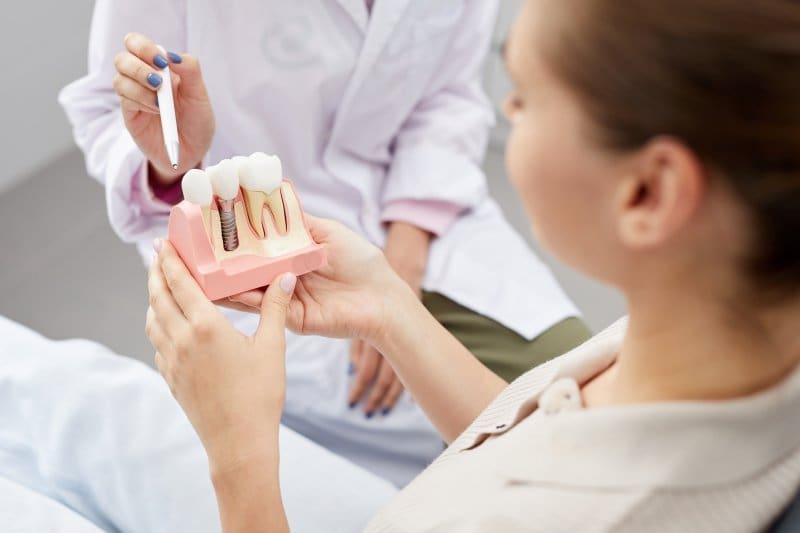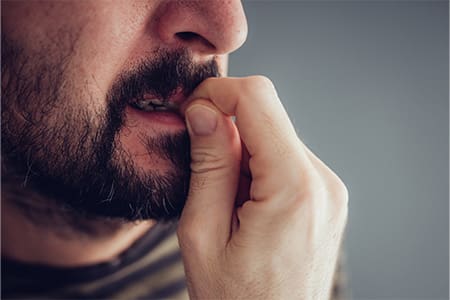Bringing Relief to Your Aching Mouth

Even if you act cautiously and try to prepare, dental emergencies can happen at any time. That constant risk is part of what makes urgent oral problems so stressful for most. Still, there’s good news: you can trust your emergency dentist in Weston to help your mouth heal! With our skilled and experienced team, your smile will get back on track quickly. Learn the relevant details below or book your visit with us soon.
Why Choose Weston Dental Specialists Group for Emergency Dentistry?
- Highly-Experienced Dentists
- Warm & Gentle Dental Team
- Morning, Lunchtime, & Afternoon Hours
How We Treat Dental Emergencies

While they can be surprising, you don’t need to panic over dental emergencies. We’ll gladly walk you through how our practice treats these issues. In fact, the process only involves four simple steps:
- A Near-Immediate Visit – Once you call us, our team will set your visit as soon as possible. We’ll then provide care tips over the phone while you wait for treatment.
- An Emergency Exam – Our dentists will assess your mouth when you first arrive for care. That way, we can diagnose your problem and confirm how to relieve your pain.
- Findings Review – We’ll share our findings after the oral exam, as well as procedures that will help you. We can then draft a treatment plan using your feedback, emphasizing the relevant costs and time involved.
- Proper Dental Care – Once the treatment plan is ready, we’ll quickly repair your smile. You can trust our expert dental team to do an amazing job at that! After all, we’re prepared to provide you with dental crowns, fillings, root canals, or anything else you need.
The Most Common Dental Emergencies
Without a doubt, you should call us when you have a dental emergency. We’ll quickly and gladly address your oral problem, making your grin much healthier as a result. Just don’t forget that you can take steps to manage your situation yourself; doing so would make your care easier. If you’d like to learn how, please click one (or more) of the icons below and use the related instructions.
Understanding the Cost of Dental Emergencies

The cost of dental emergency treatment varies, as it largely depends on the patient’s situation, the treatment practice, etc. That means you should consult our dentists in person for an exact estimate; they’ll gladly confirm your care’s final price. Our team will also work to make your treatment affordable, walking you through its pricing factors, dental insurance, and more. Please talk to our team for more details on the cost of a dental emergency.
Keys to Preventing Dental Emergencies

Since accidents sometimes happen, you can’t stop all dental emergencies. You can, however, reduce your risk of experiencing one. Just remember to do the following:
See Your Dentist Often

With six-month checkups, your dentist can diagnose and treat small issues before they worsen. The cleaning portion of your routine visits is equally as important because it allows your hygienist to remove built-up plaque and tartar as well as clean the hard-to-reach areas of your mouth. If you have a suspicion that something is wrong, don’t wait until your next checkup and cleaning. Instead, schedule an appointment with our emergency dentist in Weston ASAP.
Keep Your Mouth Clean

In short, if you take good care of your smile at home, you’ll be less likely to suffer tooth or gum infections. So, if you aren’t already, start brushing your teeth for two full minutes each morning and evening. Then, when you wake up in the morning or before you go to bed at night, floss and rinse with an ADA-approved mouthwash. Habits like these may seem small, but they play a big role in preventing common dental problems.
Eat Nutrient-Dense Foods and Stay Hydrated

Unfortunately, over-indulging on sugary treats can lead to tooth decay. Plus, eating hard pretzels, peanut brittle, and other crunchy foods can damage your enamel. That’s why it’s so important to fill your plate with softer, more nutrient-dense foods instead. It’s also crucial to drink water throughout the day to prevent dry mouth and its side effects.
Wear a Mouthguard/Sportsguard

Since several common dental injuries – from considerable chips to completely knocked-out teeth – stem from bruxism (i.e., teeth grinding) and sports-related injuries, it’s of the utmost importance that you wear a mouthguard to protect your smile. If you don’t have one already, don’t buy one online or at your local sporting goods store. Instead, come to our office so we can have a custom one made for you.
Break Bad Habits

We mentioned above the importance of incorporating healthy habits into your routine, like brushing and flossing consistently. To protect your smile from harm, it’s also important that you break bad habits. Smoking, chewing on ice cubes, biting your nails, and using your teeth as tools to open things are a few examples. If you want to quit, but you’ve had trouble in the past, don’t hesitate to let us know. We aim to be an ongoing resource for our patients!
Dental Emergency FAQs
Should I Visit the ER First for Dental Emergencies?
No, visiting an ER first usually won’t help. Most emergency rooms lack the ability to address or treat urgent oral issues.
The average emergency room isn’t equipped for most dental issues. Indeed, their staff usually won’t have the certifications and skill sets to do so. The most they could offer would be some antibiotics and painkillers – medicines that offer short-term relief from your problem. Beyond such materials, ER staff can’t perform the work that fixes severe smile troubles.
Of course, there are potential exceptions to this rule. You should visit an ER first if you have jaw fractures, severe cuts or lacerations to your mouth, or an extremely swollen abscess.
What Does Throbbing Tooth Pain Mean?
Throbbing tooth pain is never a good sign for your smile. Often enough, it points to the infection (or inflammation) of the affected tooth.
When a tooth’s pulp gets infected, it’ll often cause a bad ache. The pain stems from bacteria reaching sensitive inner areas and inflaming your pearly white’s tissues. (Bacteria can enter a tooth’s central areas through cavities or cracks.) If your aching tooth is infected, you should see a dentist immediately for treatment.
Less frequently, throbbing tooth pain can have other serious causes. These include teeth grinding, clenching, and other related habits.
How Can a Dental Abscess Be Treated?
A dental abscess results from an oral infection. Therefore, a dentist will treat it by removing the infected tissue from your mouth.
This removal work is often simple and smooth. All in all, the dentist just has to make an incision in the abscess to drain its pus. They’ll also perform a root canal if the infection is in one of your teeth. Afterward, the dentist will send you on your way to enjoy your repaired smile.
Granted, removals can sometimes get tough and tricky. An infected tooth may need to be extracted if it’s beyond the point of saving. An infection can also spread beyond the abscessed area, thus requiring you to take antibiotics.
Should You Put a Knocked-Out Tooth in Water?
It’s fine to rinse a knocked-out tooth with water. However, you shouldn’t place one in a water container for an extended period.
You see, water can harm the roof surface cells of teeth. Placing your dislodged tooth in it will make the pearly white less likely to reattach well. Instead, you should place the knocked-out piece back into your open socket. You can also set it in milk or saline solution (if available) for up to an hour.

